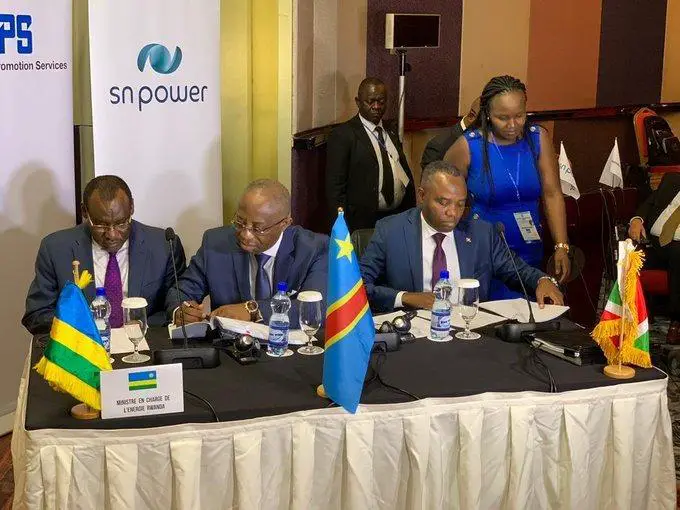UK’s Department for International Development (DFID) run and managed CDC, the mission is to support the building of businesses throughout Africa and South Asia, to create jobs, and to make a lasting difference to people’s lives in some of the world’s poorest places.
The public limited company has been working with various entities in the continent to develop structures for harnessing renewable energy in East Africa. This has been necessitated by the rising energy needs in the region as well as need for cleaner green energy worldwide.
In 2017, CDC invested in a joint venture alongside the Aga Khan Fund for Economic Development (AKFED) and Industrial Promotion Services (IPS) to develop and finance power projects in sub-Saharan Africa, mobilizing project funding of over US$ 1billion.
The platform’s flagship development project is the creation of the 147 MW Ruzizi III hydropower project to be located in the Great Lakes region (Rwanda, Burundi, and the DRC). The Ruzizi 3 hydropower plant will be located in Bukavu in South Kivu province in the Democratic Republic of the Congo. Ruzizi is the river through which Lake Kivu flows into Lake Tanganyika.
In a landmark ceremony in Kinshasa, DRC last month, a tri-national power purchase agreement with the Governments of Burundi, Democratic Republic of Congo (DRC) and Rwanda was signed by the sponsors of the project, IPS (on behalf of AKFED, IPS and CDC’s joint venture) and SN Power (a hydropower company owned by Norfund).
The agreement was signed by the Acting Minister of Energy and Water Resources of the Democratic Republic of the Congo, Pierre Kangudia, the Minister of Infrastructure of Rwanda, Ambassador Claver Gatete, and the Minister of Hydraulics, Energy and Mines of Burundi, Como Manirakiza.
Read also: How solar energy threatens Africa’s power monopolies
Chris Chijiutomi, Head of Infrastructure Equity at CDC Group, said, “CDC is committed to helping tackle climate change, supporting renewable energy projects across Africa. This is a hugely positive step in the creation of Ruzizi III. This hydropower plant will contribute significantly to socio-economic development, building confidence in these economies, increasing the supply of reliable and affordable power to millions of people across the region as well as using generation from clean and renewable sources.”
Richard Charlton, Investment Director for Infrastructure at CDC Group, also said, the signing ceremony were the product of seven years of exceptionally hard work since the international tender in 2012 — involving the three host nations, the coordinating regional body EGL, the multilateral partners (AfDB, KfW, the EU and the World Bank) and of course the project developers and all their respective advisers.
“ Ruzizi III is particularly exciting because it will be the first privately sponsored project in sub-Saharan Africa that will make use of a common regional resource and generate power to be shared equally by three countries.”
Currently, it is projected that Ruzizi will benefit a population of 30 million people, 70% of which are living under the poverty line and averaging a 6% electricity access rate.
Once commissioned, Ruzizi III will double Burundi’s current capacity, increase Rwanda’s installed capacity by 33% and provide much-needed baseload power in Eastern DRC, a region that is otherwise isolated from DRC’s interconnected grid.
CDC is one of the biggest impact investors in Africa and Asia, with a 70-year track record of helping companies to grow in challenging business environments.
Construction and operation of Ruzizi 3 will be carried out by the Consortium Industrial Promotion Services (IPS) and SN Power. These companies also signed public-private partnership agreements with the three countries. Upon completion, the power project, electricity generated from it will cost between US $11 and US $13 per kWh.
The cost of the project is estimated at US $400m, 50% of which will come from European donors, including AFD, the European Investment Bank (EIB), KFW and the European Union. Nearly 20% of these funds have already been mobilized since 2015 by the African Development Bank (AfDB).
Read also: How the Congo River could power Africa
